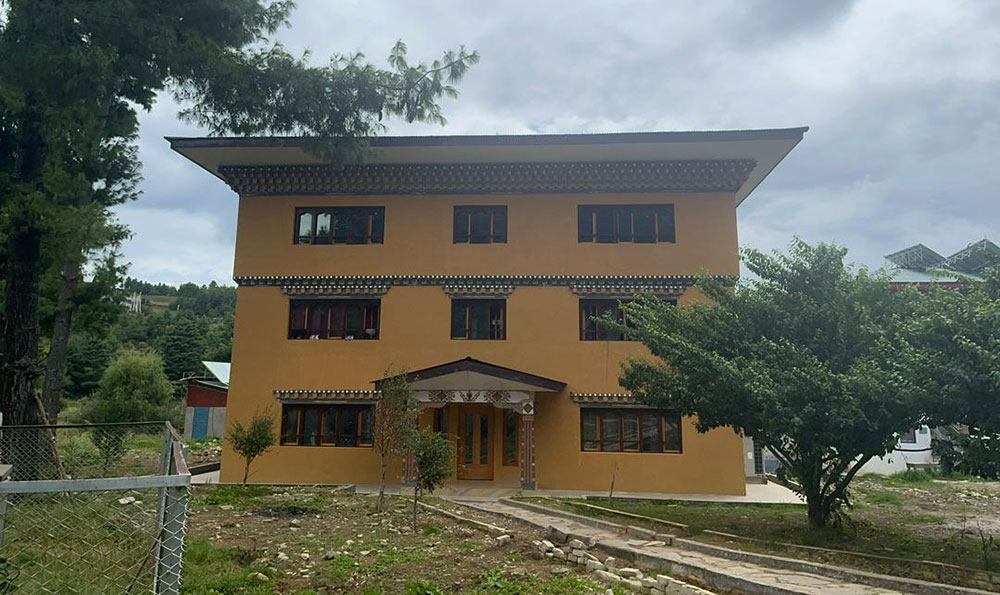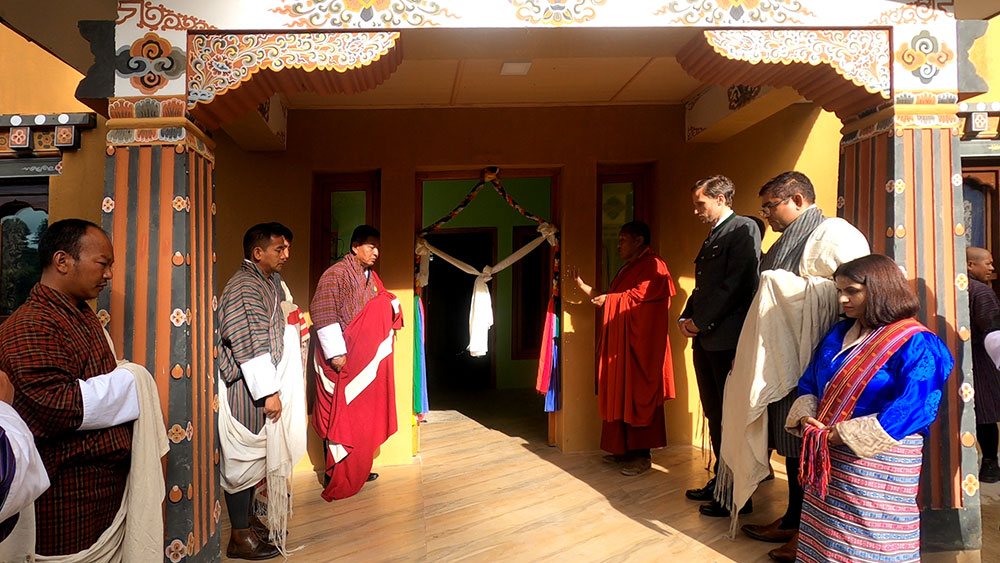Yangyel Lhaden
The recently renovated energy-efficient hostel building at the Technical Training Institute in Chumey, Bumthang, is anticipated to reduce energy consumption from 175 to 40 kilowatt-hours per square meter per year.
According to baseline energy consumption it is estimated a building consumes 175 kilowatt-hours per square meter per annum. This estimation does not include any energy efficiency measures in a building and is calculated considering an optimum temperature of 20 degrees Celsius.
The building is part of the project titled “Promotion of Renewable Energy and Energy-Efficient Technologies in the Building Sector,” funded by the Austrian Development Cooperation.

The building has been installed with energy and temperature monitoring equipment
Upgrades to the energy-efficient building include insulation using extruded polystyrene to reduce heat loss, low-emissivity double-glazed windows, sealed gaps, and LED lighting, all aimed at reducing energy consumption. Solar and heat-pump hybrid water heating systems have replaced traditional water heaters, and the heating system has been transitioned to a more efficient system.
According to a project officer from the Department of Infrastructure Development, the building sector’s electricity consumption escalated from 141.17 gigawatt-hours (GWh) in 2005 to 504.2 GWh in 2022, as per data from the Bhutan Energy Directory.
“Most of the electricity consumption in the building sector, totalling 257.83 GWh in 2022, is attributed to space heating and cooling,” said the project officer.
Bumthang was chosen for the project for the pilot project due to its status as the coldest region, utilising a significant amount of energy for heating. The institute’s involvement serves as a platform for technology transfer, offering construction practice training to 72 trainees.
The rising energy demand has led to decreased energy exports to neighbouring countries and an increase in energy imports, impacting revenue negatively.
“Implementing energy-efficient measures in buildings will aid in reducing energy demand, facilitating increased energy exports and decreased imports, thereby positively influencing the nation’s revenue,” the project officer said.
The department has installed energy monitoring equipment and temperature sensors in the hostel to gather year-long data on energy consumption patterns and indoor thermal environment quality.
Following data verification, the department intends to develop a building energy efficiency code of practice, which will later be integrated into the Building Code of Bhutan.
The renovation of the energy-efficient building incurred a cost of Nu 13.6 million, with energy efficiency measures accounting for Nu 7.5 million of the total expenses.


